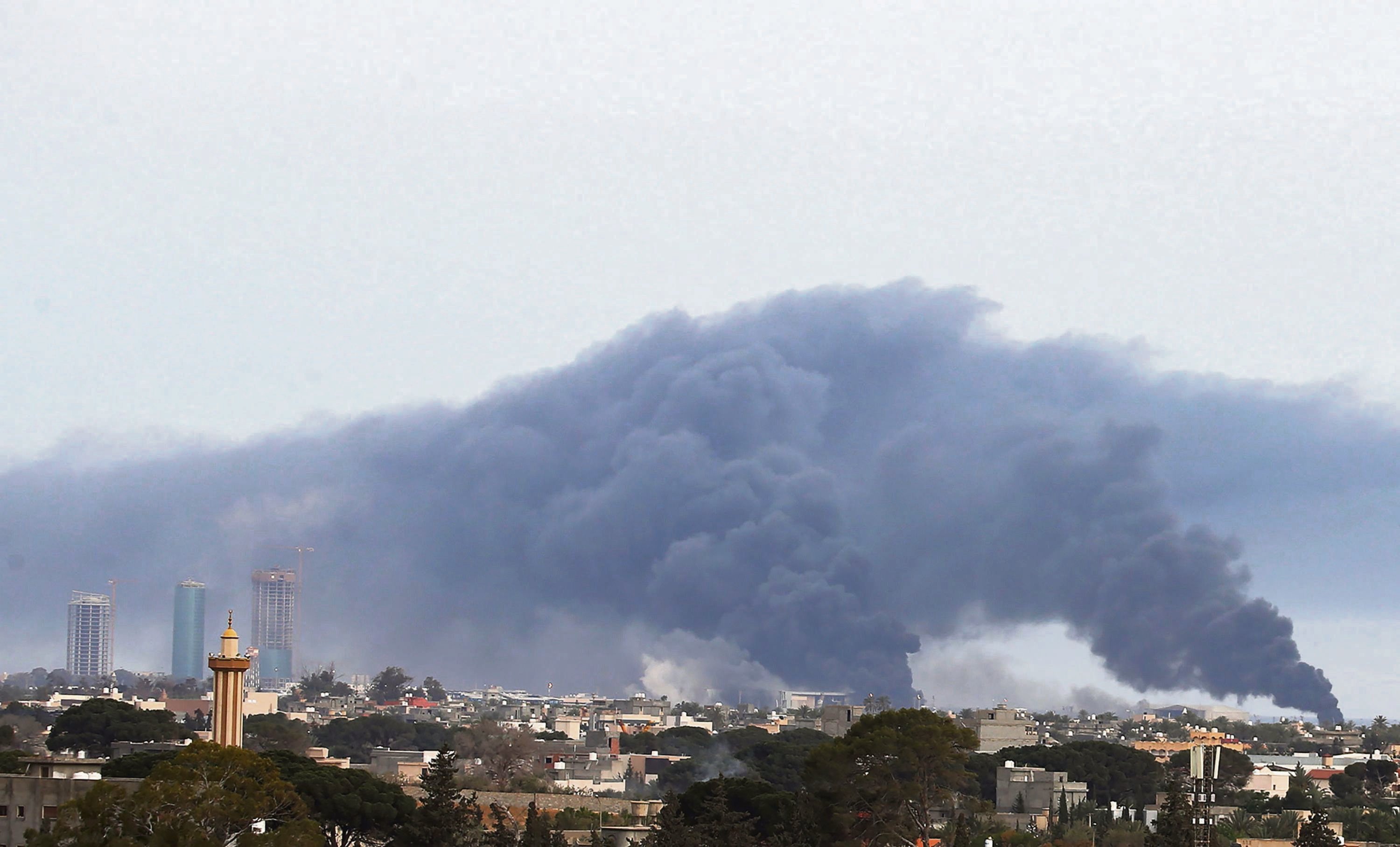Libyan retreat hints at repercussions for Russia in Syria
https://arab.news/wugsh

Hundreds of Wagner Group mercenaries fighting with Libyan Field Marshall Khalifa Haftar were evacuated from combat zones south of Tripoli to an unknown destination over the weekend. Haftar’s offensive to capture the capital, which began in April last year, has ended up with his retreat and the evacuation of the Russian mercenaries supporting him. While the Turkish media praised Ankara’s military prowess, claiming Turkey had changed the balance of power in Libya, this would not have happened were it not for American support.
The US, which had been watching from a distance and urging the two sides to enter into negotiations, took a firm stand. A week ago, the US and the UK denounced Russia’s actions in Libya. The Government of National Accord, supported by Turkey, then captured towns and a strategic air base from Haftar’s Libyan National Army. It was also able to destroy several of Haftar’s Russian-made air defense systems. After a phone call between Recep Tayyip Erdogan and Donald Trump on Saturday, the latter took a more assertive position, calling for a “rapid de-escalation” in order to avoid a retaliation by Haftar’s forces.
The US position on Libya could be sending signals to Russia over Syria. The White House has not so far taken a confrontational attitude toward Moscow on this front. Even James Jeffrey, the US special envoy to Syria, said in a recent interview with Asharq Al-Awsat that the Russians were exempt from America’s demand that all foreign forces should leave Syria, as they have been present since before 2011. However, Russia has recently been allowing Iranian aircraft to land at its Hmeimim air base. The Iranians probably want to land there to avoid being hit by Israeli airstrikes, which have been increasing over the last few weeks.
Israel, which has claimed that Iranian forces are starting to pull out of Syria, is adamant on upping the pressure in order to avoid a reversal of the situation. Hence, any Russian-Iranian cooperation that protects and facilitates Tehran’s operations is totally unacceptable to Israel and the US. The Libya episode could well be a prelude to the repercussions that Russia might face in Syria.
So far, NATO has expressed “full solidarity” with Turkey over airstrikes on its forces in Syria, but it has offered no commitment to involve itself in an air campaign in the case of a confrontation. The support that the US has offered to Turkey has been limited, consisting of its Patriot missile defense system — as long as Ankara keeps its Russian S-400 system in its boxes. However, this might change. The US might take a more aggressive stance toward Russia if the latter is not able to contain Iran in Syria. If NATO shows it is serious in using its firepower against Russia, it is unlikely that Moscow will produce an act of defiance and protect the Iranians. Iran and Russia have diverging long-term goals in Syria. To start with, Moscow has no appetite to join a fight against Israel.
Russia is not in a very favorable position. It has apparently chosen to cut its losses in Libya and evacuate the Wagner Group mercenaries. However, a loss in Syria would undermine President Vladimir Putin’s standing domestically. Nevertheless, he realizes that he cannot win with Bashar Assad.
In addition to Assad’s cousin Rami Makhlouf publicly criticizing the Syrian president, Eyad Al-Hussein, a journalist close to Russia’s “favorite Syrian warlord” Suheil Al-Hassan, also attacked Assad on social media. He said there is no economic solution in Syria and that the situation will only get worse with the enforcement of the US Caesar Act in June. Al-Hussein also said that the economic situation would not improve as long as sanctions are in place, and they will not be lifted unless there is a political solution, which is not possible under Assad. He said that all Assad is willing to offer is a show at peace talks in Geneva and he has no intention of making any concessions aimed at reaching a political solution while the “money mafia” controls the country. The value of the Syrian pound has been in freefall. If the country’s economy crashes, will Russia be able to manage it?
Moscow should envision a situation where NATO is ready to support a Turkish offensive in Syria, and where regime areas reach total breakdown, while Assad lives in his own bubble and his wife amasses wealth and continues her exorbitant shopping.
The US might take a more aggressive stance toward Russia if the latter is not able to contain Iran.
Dr. Dania Koleilat Khatib
Putin pushes the limits, but he makes calculated risks. Amid the recent Turkish-Syrian regime clashes, he did not want a face-off with the Turks so he called for a truce and signed the cease-fire on March 5. Now that the US is showing it is serious in containing Russian ambitions in the region, it is better for Putin to seek a deal while he has something to negotiate with. If a total breakdown happens, Putin will have no cards to play and will be scrambling for the exit.
Assad has reached a dead end. He is stretched and cracks are emerging in his own house. However, to drive Putin to the negotiating table, the West should offer a full-fledged proposal that preserves Russia’s interests in Syria. Putin would never let go of his foothold on the Mediterranean. And Russia would also want to recoup some of the costs it has incurred. It cannot leave the fight empty-handed. But Putin is reasonable and he understands very well that he might have reached a tipping point in Syria.
- Dr. Dania Koleilat Khatib is a specialist in US-Arab relations with a focus on lobbying. She holds a PhD in politics from the University of Exeter and is an affiliated scholar with the Issam Fares Institute for Public Policy and International Affairs at the American University of Beirut.









































